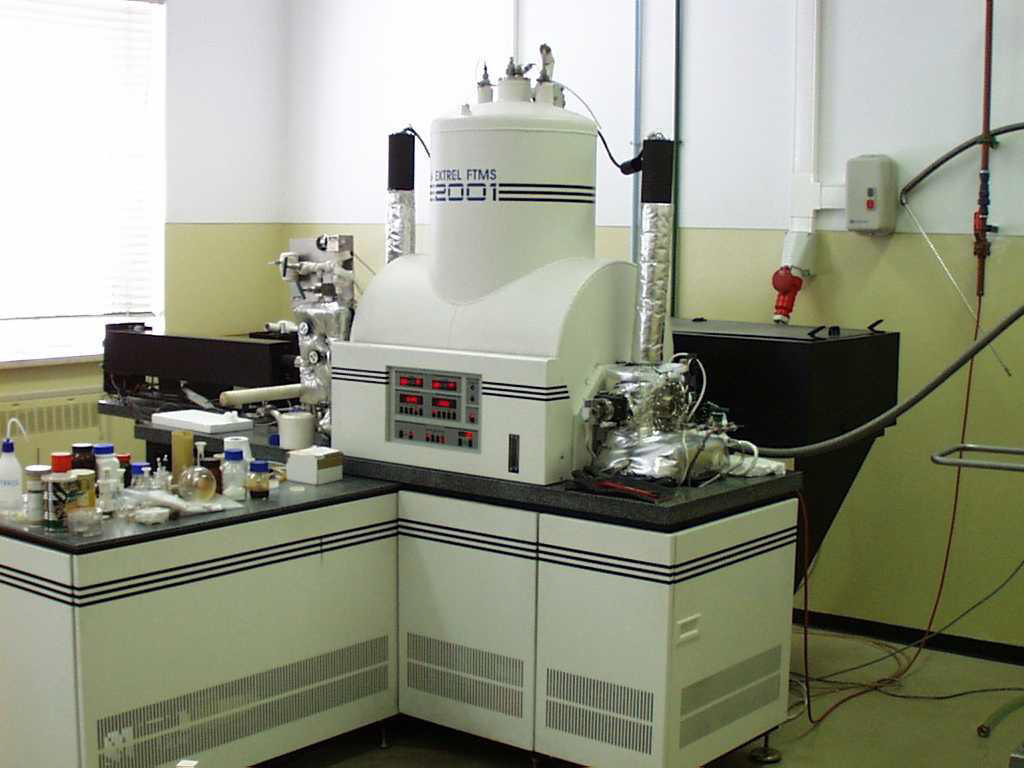Fourier Transform Ion Cyclotron Resonance Mass Spectrometry
Fourier Transform Ion Cyclotron Resonance Mass Spectrometry (FT-ICR/MS) is a technique that is especially suited for the study of the chemistry of ion/molecule systems in the gas phase. As a result of the applied magnetic and electrical fields, it is possible to trap ions for long periods of time when compared with more conventional mass spectrometry techniques, and complex sequences of processes can be accomplished: ionization, selection, acceleration, ejection, collision, reaction and detection. The different event sequences correspond to different types of experiments in which ion structures, reactant/product sequences, kinetics and thermodynamic properties can be studied. The FT-ICR/MS technique is also a powerful analytical tool, displaying very high mass resolution and mass accuracy, and as it can be coupled to a large variety of ionisation methods, it can analyse numerous types of compounds and materials.

The FT-ICR/MS equipment at Campus, an Extrel/Finnigan FT/MS 2001-DT with a 3 Tesla superconducting magnet and a Nd:YAG laser for desorption/ionisation, is unique in the country, was installed in October 1991 as a result of the “Ciência” Programme and is shared by Nuclear and Technological Campus (CTN), IST and FCUL. With support of the “Praxis XXI” Programme, a new instrument control and data acquisition station, and a module for quadrupolar axialisation were installed in early 1999.
The FT-ICR mass spectrometer is run by researchers from C2TN and it is mainly used for gas-phase lanthanide and actinide chemistry studies, and also in the characterisation of lanthanide and actinide compounds. Due to its analytical capabilities, it is also used for the characterisation of organic and organometallic compounds, namely through accurate mass measurements, as requested by research groups in national and foreign universities and laboratories.
